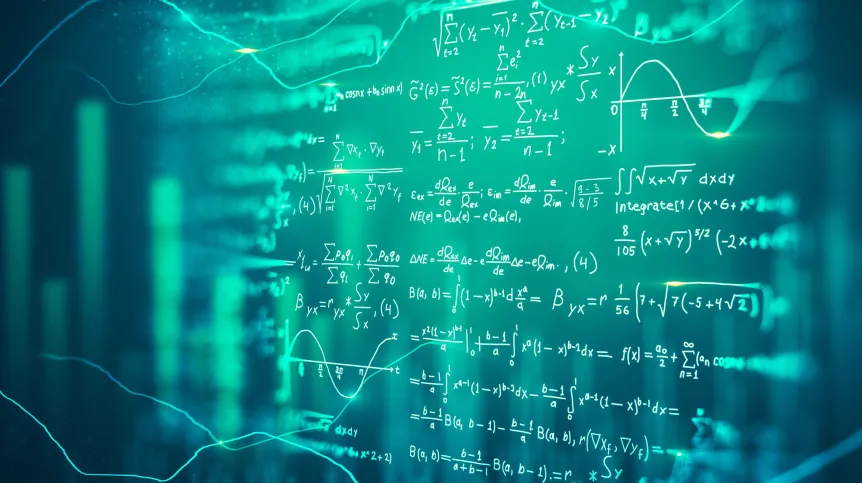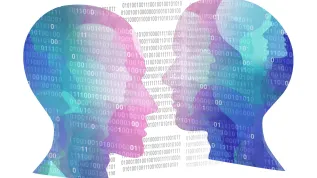
Mathematics, theoretical computer science, programming - these are the fields of science in which AI will be the first to effectively support scientists. It is only a matter of time before it achieves superhuman capabilities in these areas, Professor Piotr Sankowski tells PAP.
Professor Sankowski, four-time ERC grant winner, is a physicist and computer scientist from the University of Warsaw, and founder of the IDEAS NCBR institute, where research on artificial intelligence is conducted. He is also involved in the companies MIM.AI and MIM Fertility.
Polish Press Agency: Science will never look the same after the emergence of AI.
Professor Piotr Sankowski: I expect that scientists using artificial intelligence will replace those who do not use it. Depending on the field of research, this will happen at different times. It will probably happen the fastest in abstract fields of research, where we do not need knowledge about how the world works to obtain research results - e.g. in theoretical computer science, programming.
It seems to me, however, that mathematics is the field of research in which artificial intelligence will have the greatest impact. This field exists without the need for interaction with the physical world. Knowledge from experimental research is not necessary. We can already see that AlphaGeometry is capable of solving equations at the level of a silver medallist in an international Olympiad. Similarly, the o1 Open AI model was tested on data from computer science competitions and handles tasks better than most competitors.
This is specialist knowledge in which even a professional mathematician will have difficulty winning a medal without preparation. The first fields are already emerging where models reach expert level. We are no longer talking about an AI model competing with an average person, it has skills in which it is as good as an expert. The next step is to achieve superhuman skills in one of the fields of science. In some fields of knowledge, this is already becoming possible.
PAP: What about fields where traditional experiments are conducted?
PS: Using AI there is more difficult because the knowledge has to be introduced into the system. For example, AI does not handle physics very well - because in order to discover something new in physics, you need to have a huge knowledge of how the world works. And we have not yet codified this knowledge, we have not made it available to artificial intelligence models. It is similar in chemistry.
PAP: Professor Bartosz Grzybowski's team has developed Allchemy and Chematica programs to stimulate chemical reactions. And they are doing quite well.
PS: That is why progress in AI in fields such as chemistry will also be visible. However, it will be slower than in abstract research.
PAP: The AI Scientist program invents, develops and writes medium-level scientific papers in the field of Machine Learning for $15. Since so many tasks in a scientist's work are already being replaced by artificial intelligence - maybe we should consider how to better use the potential and time of scientists?
PS: There was a big experiment where scientists and AI were asked for ideas for new research. It was assessed that AI was better at coming up with them than scientists. And indeed - AI will, for example, help in writing grant applications. For now, however, it cannot be used in their assessment. It is also difficult to predict how scientific communication will change, but the processes of changing the way science functions have are underway.
PAP: Is it appropriate for scientists to replace the work of their natural intelligence - with the work of this artificial intelligence?
PS: It is worth using AI support in some tasks, because it is creative. Scientists who use AI can work better, faster, more efficiently. And we should not be ashamed of it - just like we are not ashamed of driving a car instead of walking. We should not be ashamed that thanks to AI we will be able to conduct more innovative research.
There will also be scientists who will not use AI, just like today there are people who do not use phones, who write on typewriters. But this will not be the mainstream of science. It will be a disappearing element.
PAP: This year, two Nobel Prizes concerned research on artificial intelligence. The creators of AlphaFold (chemistry) and the originators of artificial neural networks (physics) were recognized. What other AI programs can bring a revolution in science and are worth remembering? You mentioned AlphaGeometry. Is there anything else to watch?
PS: It is difficult to predict. AI will develop horizontally and will affect every innovation, technology and all fields of research. And artificial intelligence will be increasingly interdisciplinary. The importance of AI in fields such as medicine, ethics and law will also increase.
PAP: AI is created by engineers, representatives of the exact sciences. Should we also give a voice to representatives of the humanities and social sciences: ethics, philosophy, sociology and psychology, when considering the development of technology?
PS: We should. Laws on artificial intelligence should not be created in isolation from ethics. And when it comes to legal sciences, we need to make the legislation understandable to computer scientists, for example.
PAP: In which field of science are you most looking forward to changes?
PS: I try to do something at the intersection of solid state theory and AI. I use generative models to study the physical properties of materials. For example, we recently wrote a paper on a model that generates crystal structures of high-entropy metal alloys. This is research at the intersection of knowledge about artificial intelligence and knowledge about crystal structures.
PAP: And what AI project that you have conducted in your career are you most proud of?
PS: I have always really liked projects at the intersection of social justice and artificial intelligence. I once wrote a few papers in which I examined how to optimise a system in terms of the lack of jealousy between transaction participants. This is one way of defining social justice. We distributed certain goods among users and the idea was that at the end of the process no one envied each other - so they preferred what they had to what others had. It is possible to write and optimise an algorithm that calculates this. I regret that I did not do more research like this.
PAP: What are you researching as part of your ERC project?
PS: The EXALT project concerns the explainability of algorithms. Such explainability of classical AI concerns algorithms that we cannot scientifically prove. Meanwhile, the main task of the project is to develop such optimisation algorithms that are not strictly based on the operation of AI, but also work well, and in addition we can explain to users that the algorithm really made the best possible decision.
PAP: You implemented this grant in IDEAS NCBR. But after the controversial result of the competition for the director - you left the institute. What will happen to the project?
PS: I will probably transfer it to my company MIM.AI. However, the main challenge is that there are projects that we have submitted to financing institutions, and which I was supposed to be the manager of. They are complex, waiting for evaluation and we do not know what will happen to them.
PAP: You work as a scientist, but also a practitioner - you implement solutions related to AI. What do you think about the Polish economy when it comes to investing in AI? Hasn't the artificial intelligence train already left Poland?
PS: The opportunity will never disappear. We can still invest in AI, try, fight. However, some solutions that have already been created are not worth duplicating. Instead, we should consider what else we can do. Human talents are key in all of this. And we do have them when it comes to computer science. We are in a good position to take the subject seriously and start investing. (PAP)
Interview by Ludwika Tomala
PAP - Science in Poland
lt/ zan/ bar/ jpn/ kap/
tr. RL













